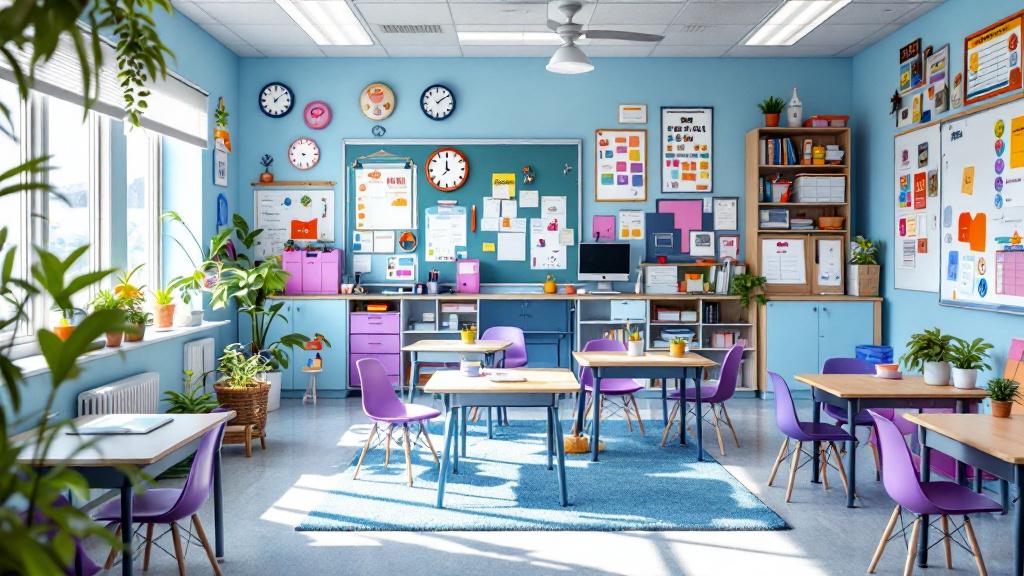Enhancing Academic Success through Behavioral Strategies
Homework can be a challenging aspect of a child's educational journey, especially for those with unique learning needs. Applied Behavior Analysis (ABA) offers a scientifically validated framework that, when applied thoughtfully, can significantly improve homework completion. Utilizing reinforcement, visual supports, task analysis, and behavior management strategies, ABA fosters motivation, independence, and skill development, leading to better academic outcomes and more positive homework routines. This article explores comprehensive ABA strategies tailored to support children in completing homework effectively, while also empowering parents and educators with practical tools grounded in research.
Supporting Homework with Reinforcement and Visual Aids

How can ABA therapy strategies support homework completion?
ABA therapy employs various strategies to encourage children to complete homework successfully. One of the main techniques is positive reinforcement, where children receive praise, rewards, or tokens for engaging with and completing tasks. The First/Then approach, based on the Premack Principle, uses a preferred activity as a reward following a less preferred task, motivating children to focus on their homework.
Visual supports like checklists, picture schedules, and graphic organizers help children understand what steps they need to take, reducing feelings of being overwhelmed and promoting independence. Structured routines and designated homework spaces create consistent environments that make it easier for children to focus.
Incorporating the child's interests and providing breaks or physical activities further enhance their motivation. Collaboration with parents, teachers, and therapists ensures that routines are consistent across settings, tailored to individual needs, and effective in improving homework completion.
What evidence-based ABA strategies can help improve homework completion?
Research-backed ABA techniques include the use of positive reinforcement—such as giving rewards and using token systems—to encourage task engagement and persistence. Visual supports like checklists, picture schedules, and clear, simplified instructions facilitate better organization and understanding of homework tasks.
Breaking down assignments into smaller, manageable steps minimizes frustration and helps children stay on task. Visual organizers and social stories can make homework more approachable. Managing sensory overload by creating distraction-free environments and offering personalized supports further aid concentration.
Regular progress monitoring, providing specific feedback, and involving caregivers in consistent reinforcement efforts are crucial for sustained success. These strategies help children develop positive habits around homework and foster confidence.
How does the First/Then approach facilitate homework routines?
The First/Then strategy utilizes the Premack Principle by pairing an undesirable task—like homework—with a preferred activity, such as a favorite game or snack. Using visual or verbal cues, this approach clearly communicates to the child that completing homework will lead to access to the preferred activity.
Visual supports like First/Then boards or charts help children grasp the sequence, which increases motivation and reduces resistance. This structured approach encourages cooperation and increases the likelihood of task completion.
Implementing this method involves establishing consistent visuals, identifying suitable reinforcers, and gradually fading prompts as independence grows. Overall, the First/Then approach creates a predictable routine, boosting motivation and helping children develop positive work habits.
What techniques can be applied to manage behaviors and foster skills for homework tasks?
ABA techniques for managing homework behaviors focus on reinforcement, prompting, and task segmentation. Positive reinforcement encourages children to stick with tasks by rewarding completed work and effort.
Visual supports such as schedules, checklists, and visual cues enhance understanding and organization. Breaking down homework into small, manageable steps through task analysis reduces frustration and increases focus.
Prompting and modeling assist children in initiating tasks and maintaining attention. Reinforcing persistence and resilience builds self-confidence.
Targeting pivotal behaviors like motivation and self-regulation through Pivotal Response Training helps students stay engaged. Consistent implementation and collaboration with caregivers ensure these techniques lead to meaningful progress.
What role do behavior plans and classroom adaptations play in supporting children with homework challenges?
Behavior plans and classroom modifications are vital in creating supportive learning environments. Structured routines, visual schedules, and clear expectations help students understand and manage their homework tasks.
Token economies and reinforcement systems motivate students to complete assignments and develop positive study habits. Environmental modifications, such as minimizing distractions and providing calming spaces, help maintain focus.
Collaborative efforts among teachers, families, and ABA professionals ensure tailored interventions that address individual needs. These approaches improve engagement and lead to successful homework experiences.
How does ABA promote independence and academic success?
ABA aims to foster independence by teaching children skills like communication, self-management, organization, and task completion. Through systematic interventions, children learn to follow instructions, stay focused, and manage their responsibilities effectively.
Addressing challenging behaviors with appropriate responses and self-regulation strategies enables children to participate actively in learning activities.
Long-term success is supported by consistent skill reinforcement across environments—home, school, and community—as well as collaboration among professionals and families. This comprehensive approach encourages confidence and self-sufficiency.
How can ABA strategies be integrated into daily routines for homework support?
Integrating ABA into daily routines involves establishing consistent, structured schedules supported by visual tools such as timers, checklists, and visual cues.
Reinforcing positive behaviors like starting tasks or asking for help with praise or tokens increases motivation. Breaking tasks into small steps makes them less daunting.
Teaching self-regulation skills and functional communication helps children manage their behaviors and express needs appropriately.
Regular collaboration with therapists and educators ensures strategies are tailored and applied consistently, creating an environment that supports ongoing homework success.
Fostering Social and Emotional Skills for Independent Learning

How can ABA be used to develop social, communication, and self-regulation skills that support independent homework completion?
Applied Behavior Analysis (ABA) offers practical tools to help children develop the skills necessary for independent homework completion. A central component is the use of structured teaching methods like task analysis, which breaks down complex tasks into simple, manageable steps. Visual schedules and checklists serve as visual supports that guide children through each stage, reducing anxiety and increasing clarity.
Discrete Trial Training (DTT) is frequently used to explicitly teach social and communication skills. During DTT, children learn to ask for help, express needs, and interact appropriately with caregivers or teachers through repeated practice and positive reinforcement.
Self-regulation is equally important. ABA incorporates techniques such as modeling appropriate behaviors and prompting to teach children how to manage emotions, self-talk to foster independence, and calming strategies like deep breathing or mindfulness. Sensory activities and calming tools, like sensory bins or relaxation exercises, allow children to self-regulate when overwhelmed.
By personalizing these strategies based on each child's needs, ABA helps lay a strong foundation for independent task completion, making homework a manageable and less stressful process. Overall, ABA’s evidence-based approaches cultivate essential skills—like communication, social interaction, and emotional control—that enable children with autism and related challenges to complete homework tasks independently and successfully.
In what ways can classroom adaptations based on ABA support students struggling with homework?
Classroom adaptations rooted in ABA principles significantly support students who experience difficulty with homework. Structuring routines through visual supports like schedules and task analysis makes assignments clearer and less daunting. Visual checklists break down tasks into small, actionable steps, helping students stay organized and motivated.
Reinforcement systems, such as token economies, encourage persistence and effort. When students complete segments of their homework or demonstrate effort, they earn tokens or rewards that can be exchanged for preferred activities.
Environmental modifications further promote focus. Creating designated quiet areas minimizes sensory overload and distractions, allowing students to concentrate better. Adjustments like reducing background noise or providing sensory breaks can also help.
Collaborating with ABA professionals ensures that interventions are tailored to individual needs, utilizing ongoing data collection to refine strategies. These classroom supports foster a more predictable, supportive environment, encouraging independence and reducing frustration related to homework.
What are the benefits of integrating social skills training into homework routines?
Integrating social skills training into homework routines builds important interpersonal and emotional skills alongside academic efforts. Using role-playing, social stories, and structured group activities, children learn appropriate social behaviors, such as sharing, turn-taking, and asking for help.
Development of these skills can lower frustration and promote cooperation during homework sessions. Children gain confidence in their ability to navigate social interactions, which is crucial for collaborative assignments or seeking support.
Furthermore, social skills training helps in reducing behaviors like social withdrawal or aggression, fostering a more positive attitude toward learning and social interactions. For students with autism or social challenges, these routines provide valuable preparation for real-life social settings.
Harmonizing social development with academic tasks results in a balanced approach—one that promotes both learning and social independence, leading to happier, more engaged learners.
How can collaboration among parents, teachers, and ABA practitioners enhance homework success?
Effective collaboration is vital in creating consistent, effective supports for children working on homework. Parents, teachers, and ABA practitioners work together by sharing observations, progress updates, and challenges regularly.
This teamwork allows for the joint development of behavior plans and classroom strategies that are aligned with the child's needs. For example, if a child struggles with distraction, the team can implement consistent visual cues, reinforcement techniques, or environmental modifications both at home and in the classroom.
Collaborative data collection and analysis help monitor progress and adjust strategies promptly. When everyone adheres to the same reinforcement schedules and behavioral expectations, children experience predictability and motivation.
This unified effort helps reinforce learned skills across settings, making homework tasks more manageable and reducing behavioral barriers. Ultimately, collaboration fosters a supportive network that boosts independence, motivation, and academic success for children benefiting from ABA strategies.
Empowering Students and Families for Long-Term Success
Implementing ABA strategies to support homework completion not only reduces frustration and builds confidence but also encourages independence and lifelong learning skills. By combining reinforcement, visual supports, task analysis, and behavior management techniques, parents and educators can create a supportive, motivating environment tailored to each child's needs. Collaboration among families, teachers, and ABA professionals ensures consistency and effectiveness, leading to sustainable progress. As children develop these foundational skills, they gain more control over their learning, instill positive habits, and ultimately become confident, autonomous learners ready to face academic challenges with resilience and motivation.
References
- Powerful ABA Therapy Strategies That Help Teens Thrive
- Teaching with First/Then (Premack Principle) - How to ABA
- ABA Therapy Approach to Enhancing Focus and Reducing ...
- How to Use ABA in the Classroom
- 5 Ways ABA Therapy Helps with Classroom Adaptations
- Homework Strategies: Helping your Child with Learning at Home
- Homework: Does It Have to be so Daunting? - Verbal Beginnings
- ABA Therapy: Promoting Independence in Daily Life
- How ABA Therapy Supports School Readiness for Child with Autism





































































































